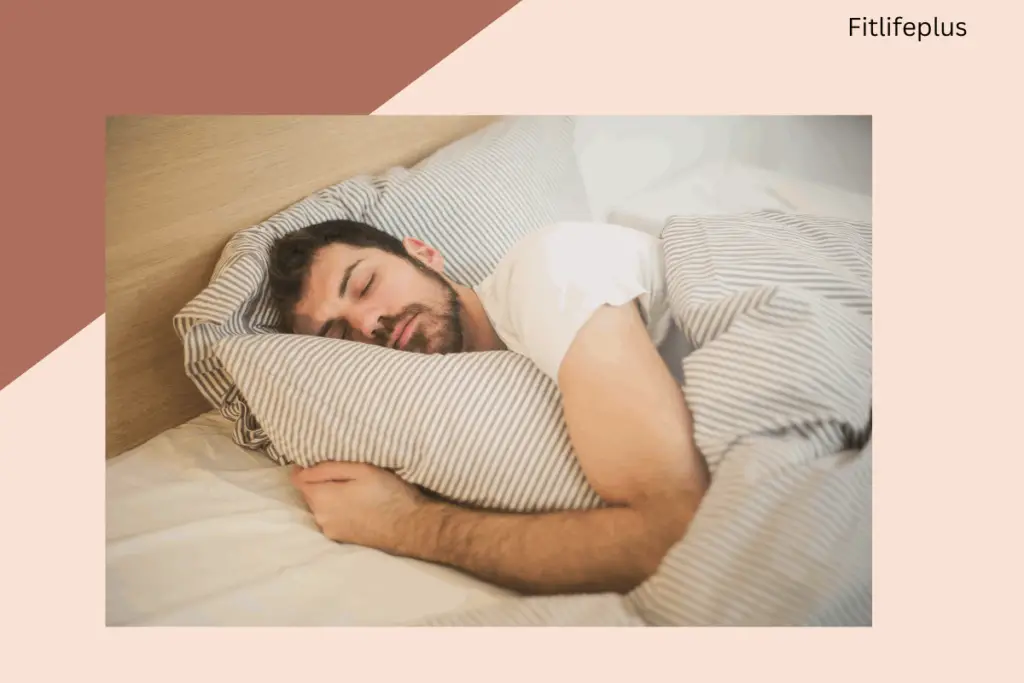Can your lifestyle, sleep, and diet changes trigger your migraine or disrupt the snooze time? According to the research, sleep, and migraine have a bidirectional relationship. The headaches can affect your sleep, and the complications in sleep can trigger a migraine attack.
But, according to the research, you can sleep with a migraine by improving your sleep quality and changing your sleeping habits. So it’s essential to know “how to sleep with a migraine.” A few easy and effective practices can help you sleep peacefully. By improving your sleep hygiene, you can feel a lot of improvement in your sleep.
Before discussing how to sleep with a migraine, let’s discuss some basic information about migraine.

What is a migraine?
A migraine is a severe headache often accompanied by other symptoms like nausea and light and sound sensitivity. Migraines are often severe, disabling, and immense suffering. According to the Cleveland Clinic, migraine is the sixth most disabling disease in the world.
According to the research, migraine is a genetic and neurological disease that suffers almost 12% of the population. Though anyone can experience a migraine, genetic factors, and gender can dramatically impact the risk.
According to a study, women are two to three times more prone to migraines and experience the symptoms of a more extended period.
How to sleep with a migraine?
A migraine attack makes it difficult to fall asleep, especially in cases of severe pain. With migraine, you may be experiencing other severe symptoms. Though there is, no one size fits all solution to getting perfect sleep during an attack. But some methods can help you to get sleep with migraine.
1. Stick to a regular sleep schedule
According to the Centers for disease control, maintaining a regular sleep schedule is the first step to getting quality sleep. But unfortunately, the random sleeping hours like the weekends are not self-care but are doing the opposite for your health.
Try to sleep and wake simultaneously daily, as it will help you develop a steady routine.
2. Remove all the noise sources
When you feel the migraine is kicking in, you first want to get as far as possible. But living with your family in a busy city can be easier said than done.
Sound can worsen migraine symptoms, so minimize as much sound as possible. You can benefit from high-quality earplugs to prevent the disturbance of these noises.
3. Avoid Alcohol and Caffeine
Most of us know that having caffeine during the late day will prevent you from getting on-time sleep. Drinking alcohol or having caffeine within the 8 hours of getting sleep can prevent you from having perfect sleep. It will also not let your body get the benefits of sleep, like recovery.
It takes a lot of work to avoid these things during the eight hours before bedtime. But if you are suffering from a migraine, it will help you get proper sleep, and the efforts will be worth the results.
4. Breathing techniques
You can quickly fall asleep during the 4-7-8 breathing techniques. You have to inhale to the count of 4, hold your breath till the count of 7, and then exhale at 8. This breathing technique will relax your mind and help you fall asleep faster.
5. Clear your mind
Before going to sleep, list your to-do list. Write down your prayers and your journal thoughts. Keep a pen and diary on your bedside table. Take a hot bath and sleep a lot better and peacefully with an empty brain.
6. Unwind early
A good bedtime routine is the secret of peaceful sleep. Put on your pajamas, have tea, brush your teeth, and read a book in a peaceful room. Dim the lights earlier than usual, and boom.
7. Turn off your digital devices

The blue light from our digital devices is notorious for our circadian rhythm and ruining sleep quality. Try using blue light-blocking glasses if you can’t afford to put your laptop or phone away for hours before sleep.
According to experts, you shouldn’t look at the screen during bedtime.
8. Avoid the Naping
When we are tired or deprived of sleep, we often try taking naps during day time and sleeping on the weekends or sometimes go to bed earlier than we thought.
The fact is our brain is involved in the driving of the sleep rhythms. So you should avoid napping and be specific about your sleep timings. These short naps can disturb your sleep cycle and can result in side effects on your health with time.
9. Sleep in a dark room
Did you know that even the moonlight or the alarm clock light can disturb your circadian rhythm? You should get your bedroom as dark as possible to improve sleep quality. The blackout curtains will keep the light away, and a quality sleep mask will avoid the sneaky light sources of all the electronics.
10. Use a new pillow
We all have woken up due to the wrong positioning that comes with neck pain. When the alignment of your neck is not according to your body, it will result in neck pain that will cause a headache.
To prevent it, you can use a unique pillow to position your neck and head to avoid the pain.
Can specific sleeping positions trigger migraine?
The neck and shoulder issues can worsen your migraine, while poor sleeping posture can also contribute. Using firm or too-high pillows can cause neck pain and muscle tension.
In such cases, you must consult a physiotherapist to assess the issues contributing to the problem. Some people snore or grind their teeth during the night, that result in a headache in the morning. If you suspect you have this problem, then consult your doctor. They will give you a particular mouth palate to prevent this issue.
Tried everything, but nothing worked. You may have a sleep disorder
You can resolve many sleep problems by changing your sleep habits and hygiene. For sleep disorders like chronic insomnia, restlessness, leg syndrome, and sleep apnea, you may need help from a healthcare provider.
People who are suffering from migraines have around 2 to 8 times more prone to sleeping disorders. Besides, the person suffering from chronic migraine, which means 15 to more headaches in a month, reports an insomnia rate twice as compared to those with less frequent headaches. Poor sleep is the main reason for these headaches.
FAQ’s
Which position is ideal for sleeping with a migraine?
Try sleeping on your backside, not on the front. Sleep on your side or back, as it is the ideal spine alignment. Besides, you may feel good sleeping in a ball fetal position, but it can stress your shoulders and neck.
Can we sleep with a migraine?
Yes, with the help of making beneficial changes in your night routine, you can sleep with a migraine. Sleep is crucial during the attack as it can help overcome migraines, especially in children.
What is the best position to get rid of a migraine?
Lie on a mat with your back and draw the knees to your chest. Lower the legs to one side while keeping the hips stacked. Stretch your arms to the sides of the mat and your palms facing up. Gaze up towards the ceiling.
Conclusion
Sleep can play a role in the frequency and intensity of the migraine. Once you find effective ways to improve your sleep, you will see a continuous decrease in migraines and an increase in overall health.
If your sleeping habits aren’t helping you, get a better rest to improve your migraine symptoms and consult your doctor to see if you are suffering from sleep disorders.




